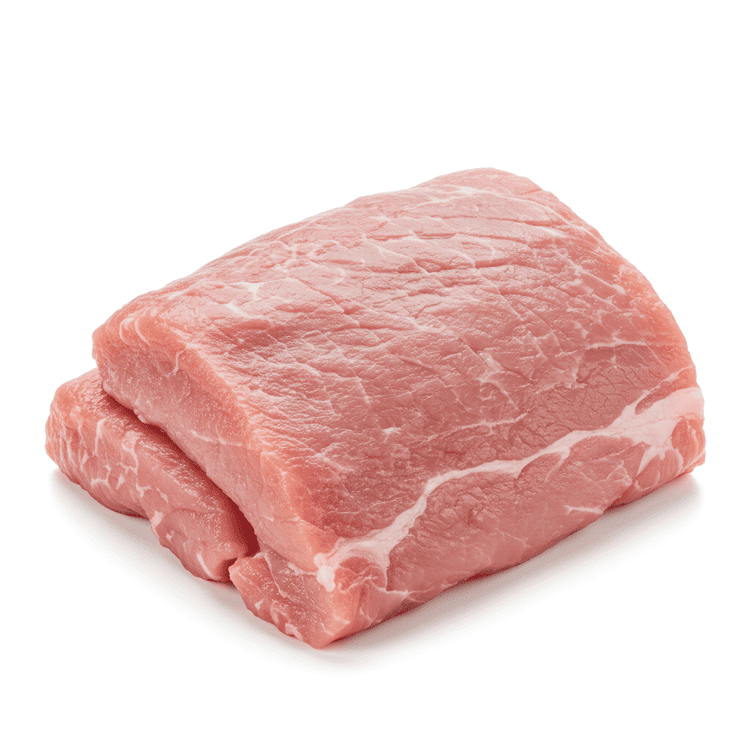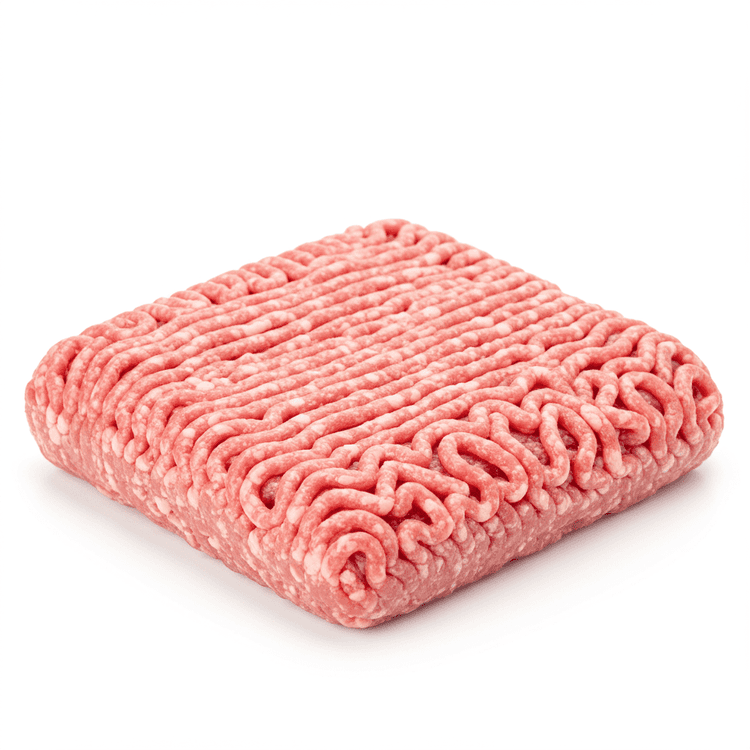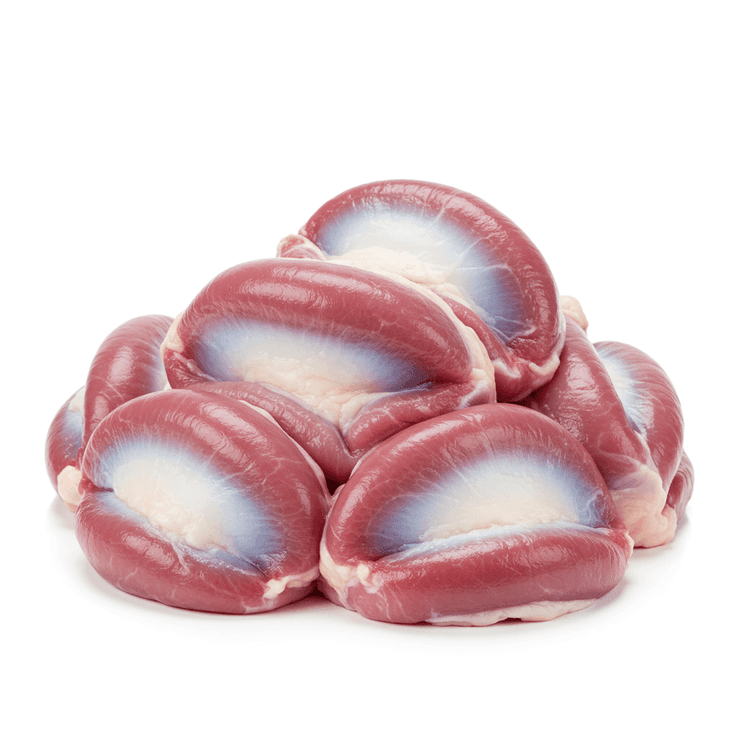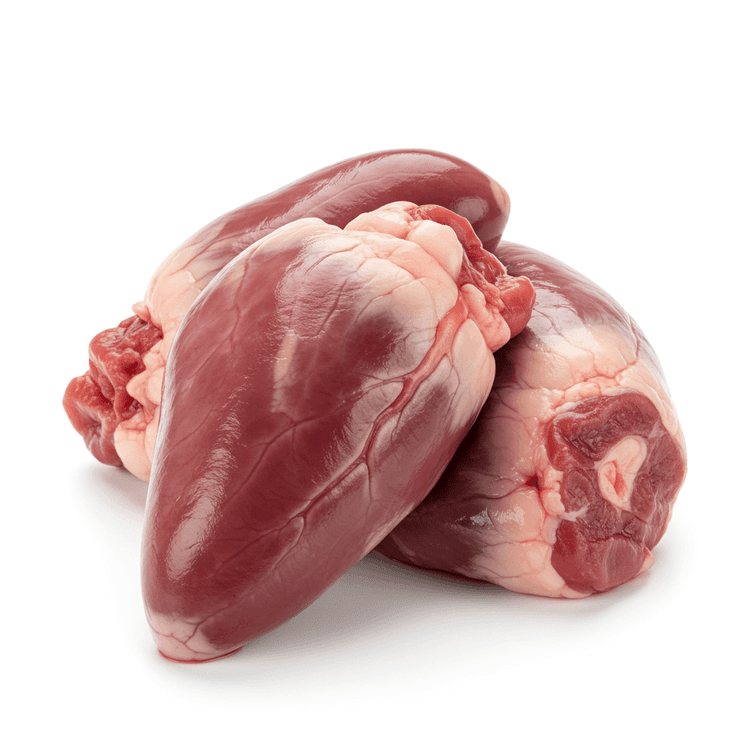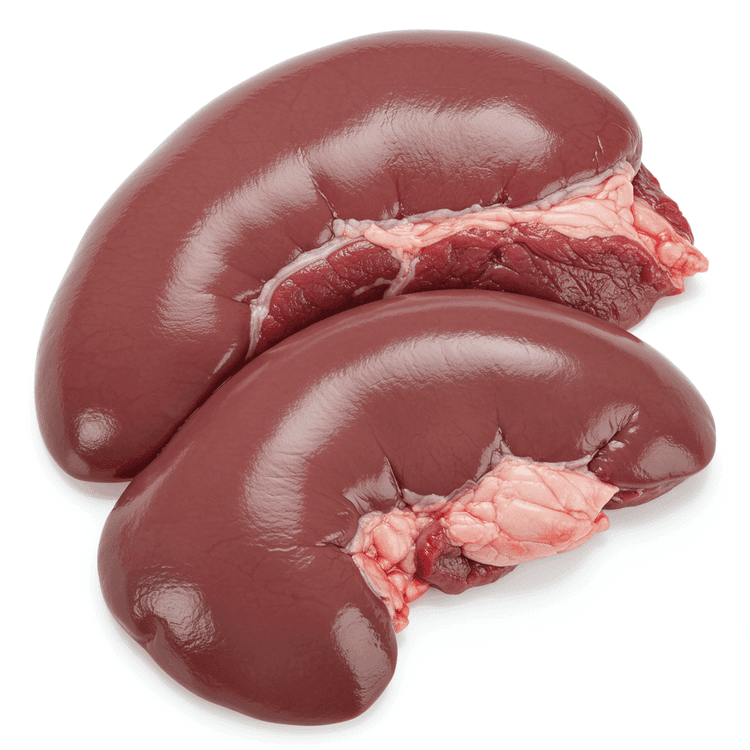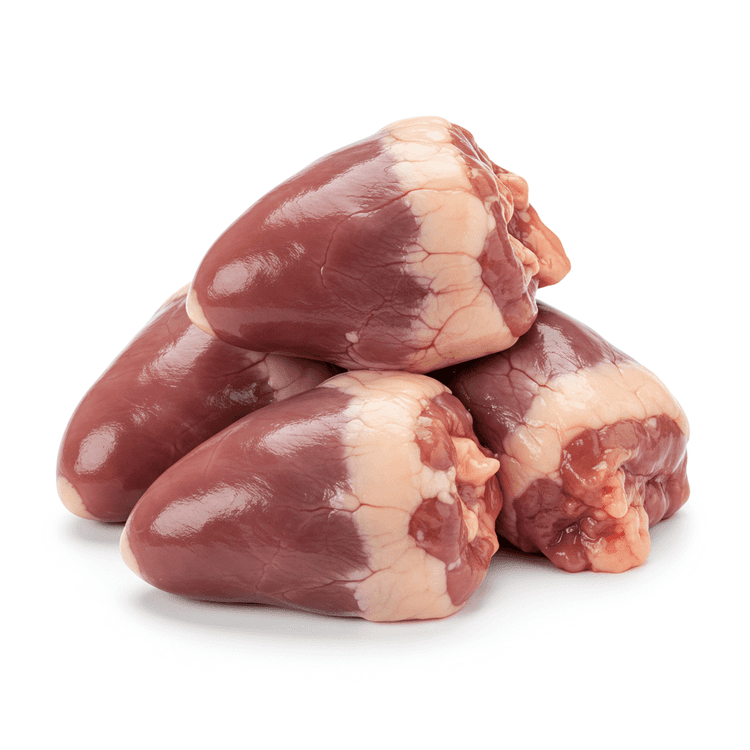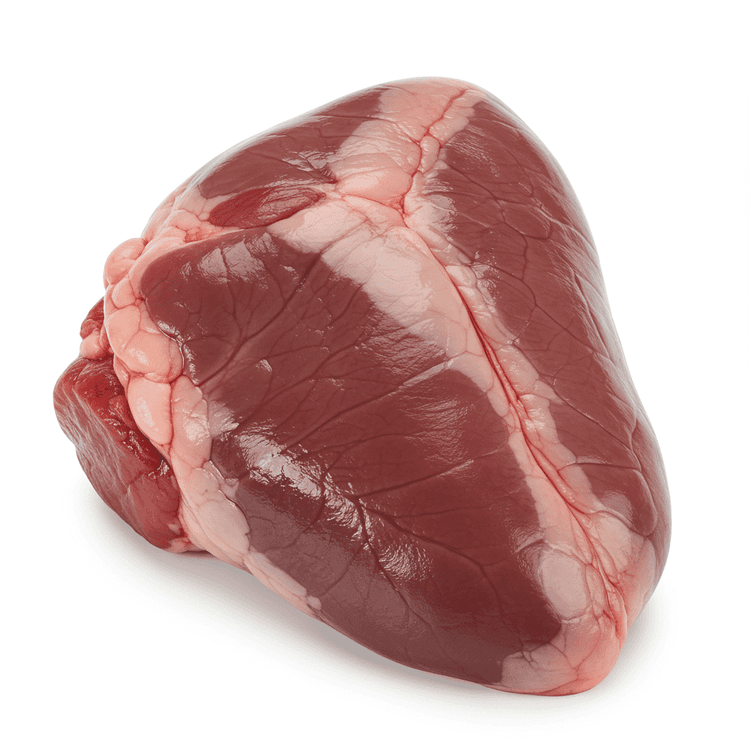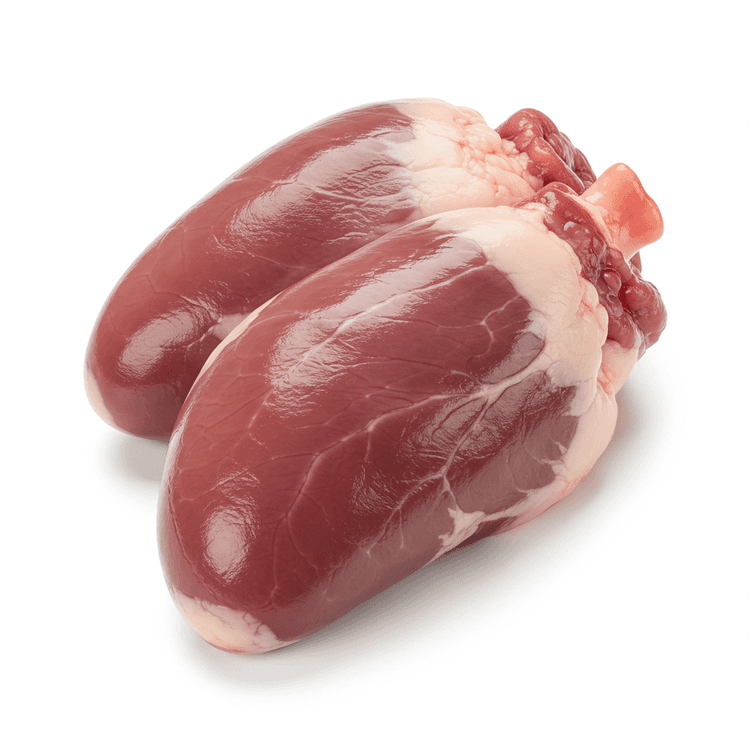
Pork Heart
Pork heart is a dark red, dense muscle meat with a slightly gamey, iron-rich flavor. Its texture is firm and can be chewy if not cooked properly. When sliced, it resembles a lean cut of beef. A budget-friendly option, pork heart is a versatile ingredient for adventurous cooks seeking nutritious and flavorful organ meats. Many people are searching for 'how to cook pork heart' or 'pork heart recipes' so this is a wonderful ingredient to explore!
Common Uses
- Pork heart can be thinly sliced and stir-fried with vegetables and flavorful sauces like soy sauce and ginger for a quick and savory meal, appealing to those looking for 'pork heart stir fry recipes'.
- Ground pork heart can be added to meatloaf or burger mixtures to enhance the flavor and nutritional value, providing a richer, more complex taste profile.
- Braising pork heart in a flavorful broth with herbs and spices until tender is a great way to tenderize it and create a comforting, hearty dish, answering the query of 'how to braise pork heart'.
- Pork heart can be marinated and grilled or pan-fried, offering a more robust and intense flavor when seared, appealing to those looking for 'grilled pork heart recipes'.
- It can be used in pate or terrines, adding a unique texture and depth of flavor to charcuterie.
- Pork heart is also excellent for making stocks and broths because of it's robust flavor.
Nutrition (per serving)
Nutrition (per serving)
Calories
159.0kcal (7.95%)
Protein
26.0g (52%)
Carbs
0.0g
Sugars
0.0g
Healthy Fat
2.4g
Unhealthy Fat
1.9g
% Daily Value based on a 2000 calorie diet
Nutrition (per serving)
Calories
159.0kcal (7.95%)
Protein
26.0g (52%)
Carbs
0.0g
Sugars
0.0g
Healthy Fat
2.4g
Unhealthy Fat
1.9g
% Daily Value based on a 2000 calorie diet
Health Benefits
- Rich in essential vitamins, particularly B vitamins like B12, crucial for nerve function and energy production.
- Excellent source of iron, supporting healthy red blood cell formation and preventing iron deficiency anemia.
- High in protein, essential for muscle building, repair, and overall body function.
- Contains coenzyme Q10 (CoQ10), an antioxidant that supports cardiovascular health and cellular energy production.
- Provides zinc, important for immune function, wound healing, and cell growth.
Chefadora AI is here.
Experience smarter, stress-free cooking.
Storage Tips
Fresh pork heart should be stored in the refrigerator immediately after purchase. Wrap it tightly in plastic wrap or place it in an airtight container to prevent it from drying out and to minimize exposure to bacteria. It's best to use it within 1-2 days for optimal freshness and flavor. For longer storage, pork heart can be frozen. Wrap it securely in freezer-safe wrap or place it in a freezer bag, removing as much air as possible. Frozen pork heart can maintain good quality for several months.
Marnirni-apinthi Building, Lot Fourteen,
North Terrace, Adelaide, South Australia, 5000
Australia
